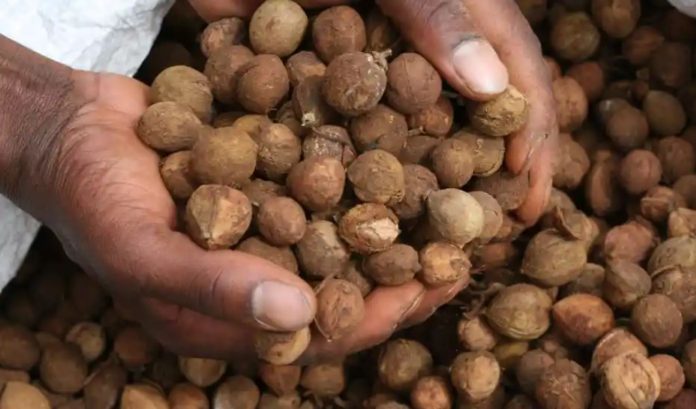Kenya’s Egerton University and University of Greenwich- UK have, teamed-up with a local enterprise to strengthen capacity for extraction of biofuels and various value-added products, from Croton megalocarpus nuts.
The 15 month project, funded by United Kingdom’s Government through its African Agriculture Knowledge Transfer Partnerships (AAKTP) scheme, is also focusing on improving productivity and efficiency during processing of the Croton megalocarpus tree products, in the manufacture of animal feed supplements, beauty products, organic fertilizers and biocides also known as ‘green pesticides’.
According to the project’s Principal Investigator, Professor Josiah Omollo, the partnership with the Nanyuki based EcoFix (Kenya) Limited, will focus on designing and developing plant-based natural product innovations using Croton seed oil and the by-products from its extraction for sustainable, organic agriculture in Kenya aimed at reducing farmer reliance on synthetic chemical pesticides and increasing household revenues.
Over use of synthetic pesticides and inorganic fertilizers
He pointed out that over use of synthetic pesticides and inorganic fertilizers have been a matter of concern for both scientists and public in recent years as they caused soil degradation, environmental and health hazards, poor yields and deaths of livestock.
“Chemical analysis have established that Croton megalocarpus nuts can be an alternative good source of natural chemical pesticide and organic fertilizers due to their safe, eco-friendly and more compatibility with environmental components compared to synthetic pesticides and artificial fertilizers. They can be safely used to manage the pest and minimize the yield loss,” notes Professor Omollo.
The Associate Professor of Organic Chemistry, Department of Chemistry, Faculty of Science at Egerton University, indicates that the Croton megalocarpus nut’s value added products’ industry was currently undervalued yet its outcome when fully exploited could rival other foreign exchange earners and boost the livelihoods of the small holder Kenyan farmers.
Professor Omollo states that diversification into other products in Croton megalocarpus nut value chain was not only environmentally friendly but also made business sense as it had become clear that reliance on biofuels only would not sustain long-term business growth.
“The project is premised on conservation and climate change where we don’t want to waste anything from the nut’s production chain. If value addition is confined to producing biofuels the process would be very expensive and nearly 90 per cent of the nut would be wasted,” he adds
The Principal Investigator reveals that the venture is also encouraging a business model where local farmers plant and harvest croton nuts to offer them reliable income. Through the trees, he notes farmers will be able to mitigate climate change effects as they address challenges like poverty.
“Croton megalocarpus is now being touted as a tree with a huge potential to reclaim eroded soils and restore them to productivity. Leaves from the croton megalocarpus trees’ have greatly improved the fertility and soil texture in the regions where they are grown while providing cover that helps in reducing evaporation during the rainy season. Croton husks can be used as a soil conditioner,” Professor Omollo explains.









